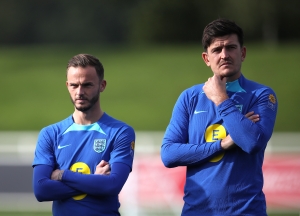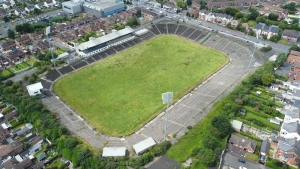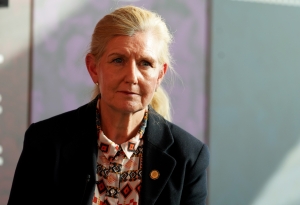The UK and Ireland will host Euro 2028, subject to final approval from UEFA’s executive committee next week, after Turkey withdrew its interest.
The five-nation bid is now the only option on the table for the finals in five years’ time after Turkey pulled out of contention for the 2028 finals to focus on a joint bid with Italy for Euro 2032.
UEFA will formally announce the hosts for the two tournaments following a meeting of its executive committee in Switzerland next week.
UEFA issued a statement on Wednesday morning which read: “Further to the announcement on July 28 which revealed the desire of the Italian and Turkish FAs to submit a joint bid to stage UEFA EURO 2032, the UEFA administration has today written to both associations to confirm that their joint bid has been duly received and will go forward for assessment and consideration by the UEFA executive committee.
“As indicated by the FA of Türkiye with its submission of the request for a joint bid, their bid to stage UEFA EURO 2028 is consequently withdrawn.
“The award of both tournaments still requires the approval of the executive committee at its meeting in Nyon on October 10. The presentations at that meeting will be an important part of the process which will take due consideration of the content of the bid submissions before reaching a decision.”
The award of Euro 2028 to the UK and Ireland should though be little more than a formality now.
Senior UEFA sources have stressed the importance of another tournament, following on from Euro 2024 in Germany, being held in an established football market to help rebuild the organisation’s reserves after the Covid-19 pandemic.
The five nations released a joint statement in response to Wednesday’s update, which read: “We are looking forward to presenting our bid to UEFA on October 10. These are exciting times, and we have a very compelling Euro 2028 proposal for UEFA.
“Our bid is ground-breaking for the men’s European Championships and will deliver lasting legacies across the whole of Ireland and the UK.
“We will share full details of the bid in Nyon next week and are confident that UEFA will approve our candidacy to host Euro 2028.”
The UK and Ireland bid dossier was formally submitted in April and features 10 stadia – six from England and one each in Northern Ireland, the Republic of Ireland, Scotland and Wales.
The six English venues included in the bid are Wembley, the Tottenham Hotspur Stadium, the Etihad Stadium, St James’ Park, Everton’s new ground at Bramley-Moore Dock and Villa Park.
A redeveloped Casement Park in Belfast is also due to be used, along with the Aviva Stadium in Dublin, Hampden Park in Glasgow and the Principality Stadium in Cardiff.
There are no guarantees that all five nations will qualify for the finals.
UEFA’s favoured plan is understood to be for all five nations to go through qualification, with two host nation places available for any that fail to qualify.
However, if more than two nations fail to qualify on merit, only the two best-performing countries would make it.
Should the UK and Ireland bid be given approval next week, Wembley would be widely expected to host its second men’s Euros final in less than a decade.
The 90,000-capacity stadium hosted a chaotic Euro 2020 final, where an independent review identified more than 20 “near-miss” incidents that could have resulted in serious injury or death.
The stadium’s next major international test will be staging this season’s Champions League final, and Football Association chair Debbie Hewitt said in June that plans to avoid a repeat of the Euro 2020 final would be “tested to destruction”.
Hewitt added: “One of the things I am absolutely convinced UEFA’s Exco will ask us is, ‘How can you assure us nobody will storm the turnstiles?’.
“We have to convince every one of those Exco members we have not only thought about it but that we have planned for it – that we know what we would do in what order and who is accountable.”






























